¿Estas escuchando bien la música? / Are you listening to the music properly?
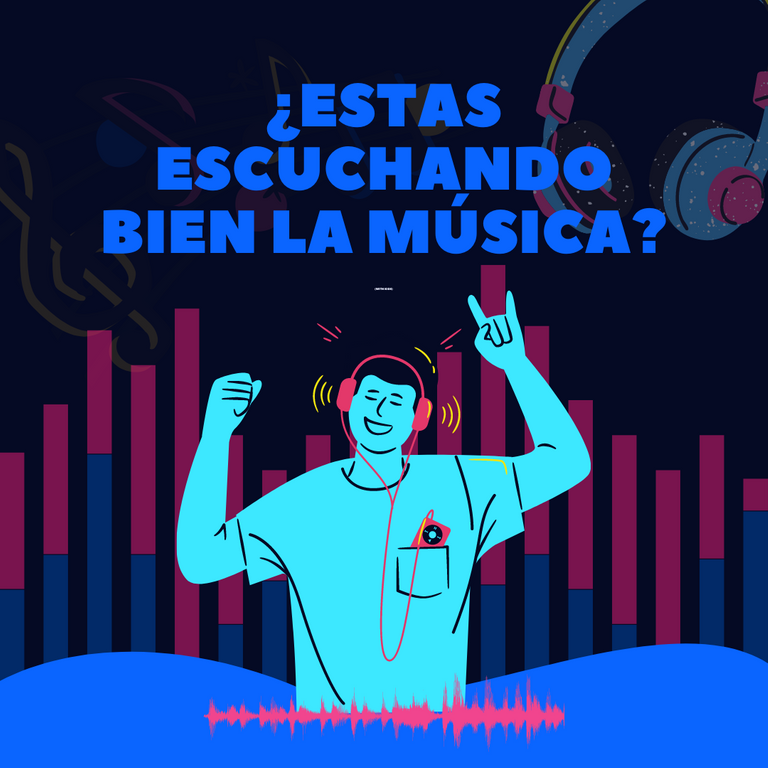
This is a question that you should ask yourself if you are a lover of musical art because to everyone's surprise, most people are missing 50% or more of what happens in a music recording for two simple factors:
1. What do you listen to music with? 2. In what format do you listen to it?
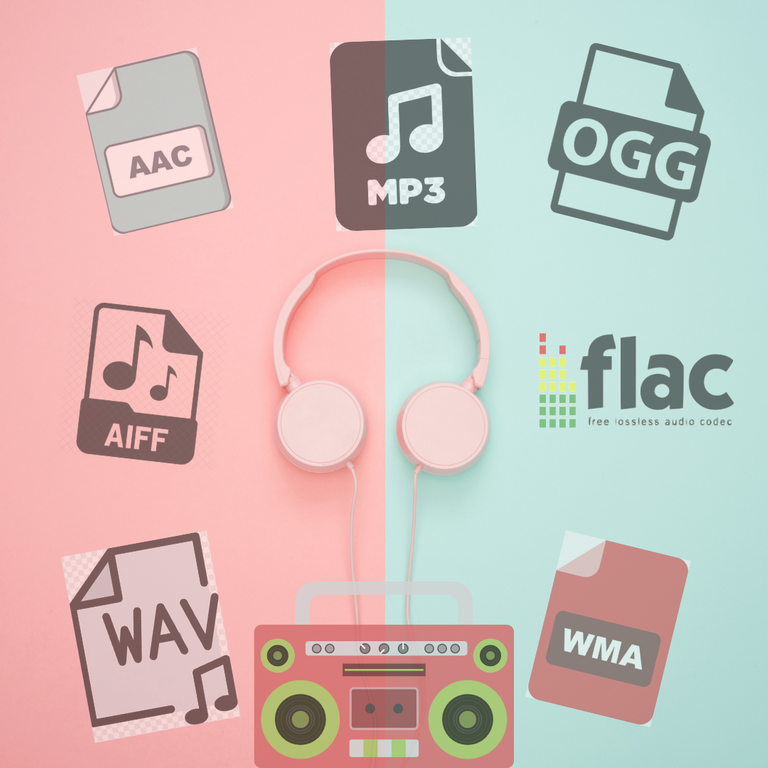
Today we will talk about the easiest and cheapest part that you can correct in order to start listening to music better, which is the format
Hasn't it happened to you that in your play list there are songs that sound better than others? Or you listen to a song on your phone then you go to your friend's phone who also downloaded that song and when you listen to it, does it sound better or worse than on your phone?
This is due to the audio format of the song and the bitrate with which it was encoded, CALM !, I do not intend to give you an audio class hahaha, rather I plan to simplify this whole topic so that you can listen to music as audiophiles do.
-
Aca te dividiré los comprimidos y los libres de compresión en un par de imagen:
We could divide the audio formats in two, the compressed ones and the compression-free ones:
Compressed formats are simply those from which data has been removed so that they occupy less space in our storage.
And the free compression, as its name says, are those formats that preserve a greater amount of data to offer better listening quality, this means that they will be files that will occupy more space in our storage, approximately, about 10 MB per every minute of audio.
Here I will divide the tablets and the free compression in a couple of images:
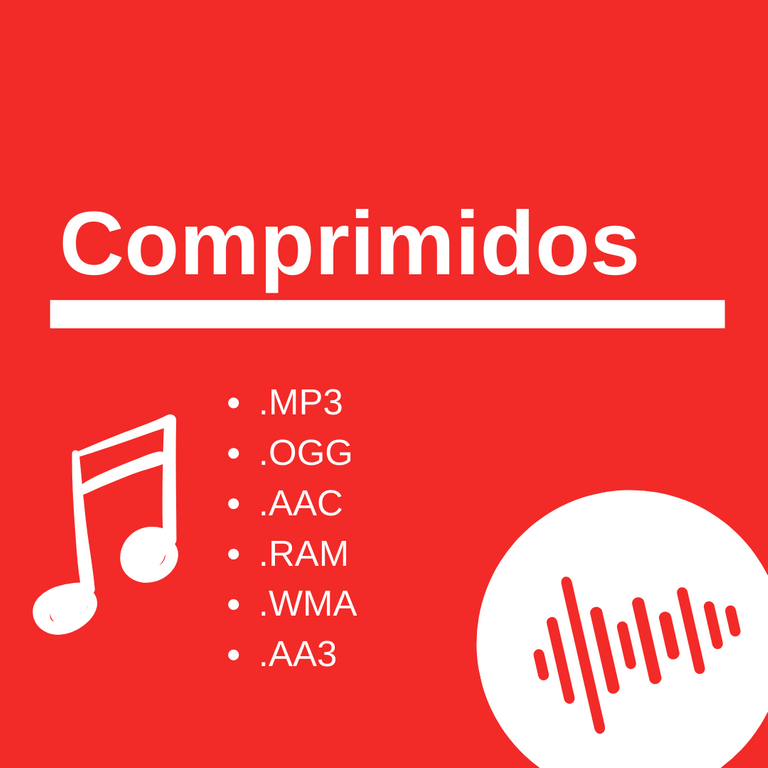
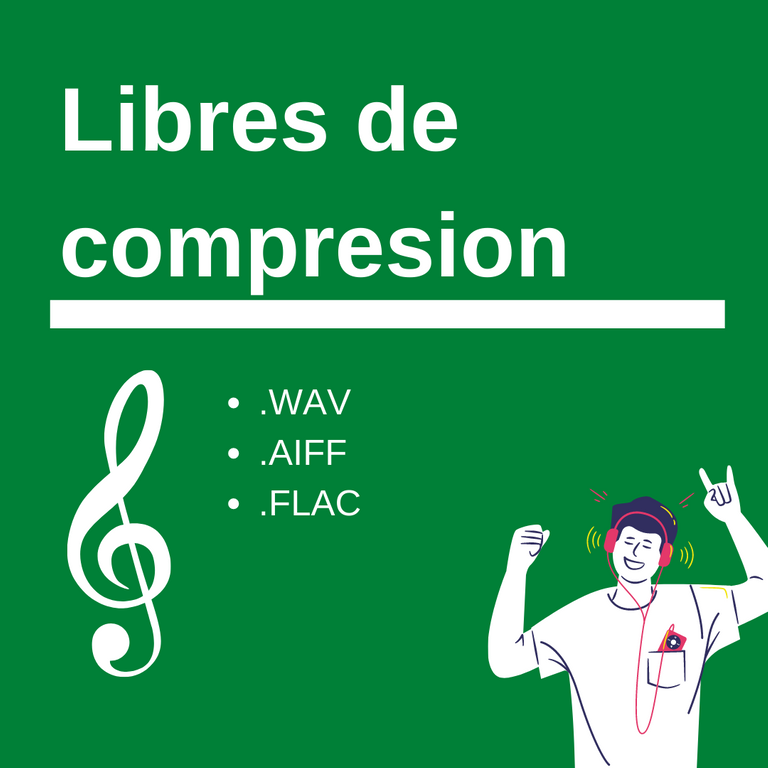
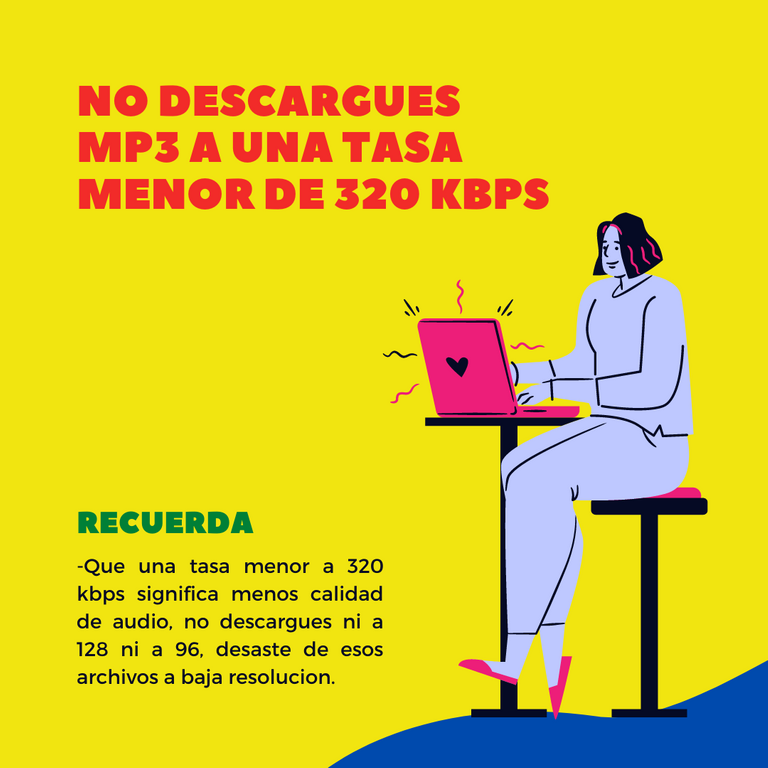
To conclude Hivers, remember that:
1.Download music in compression-free formats such as those already mentioned, (if you are a music lover, you know that it is worth sacrificing a little space on your computer or phone to have higher quality.)
But if you decide to use compressed formats (either because you don't want to spend a lot of memory or because you can't find where to download them), and you still want to have a “standard audio quality”, download songs in MP3 format with a 320 Kbps bitrate, remember that more data is higher audio quality.
In the next post we continue to develop this topic, but at the next level of the chain, which corresponds to where we listen to music, we will talk about headphones, how to recognize good headphones and low and high-end sound devices, I say goodbye and until the next post hivers :)

¡Felicidades! Esta publicación obtuvo upvote y fue compartido por @la-colmena, un proyecto de Curación Manual para la comunidad hispana de Hive que cuenta con el respaldo de @curie.
Si te gusta el trabajo que hacemos, te invitamos a darle tu voto a este comentario y a votar como testigo por Curie.
Si quieres saber más sobre nuestro proyecto, acompáñanos en Discord: La Colmena.
Do you want to get involved? Do you want to support music and this project? Follow us to keep you updated and read our Introduction post!
Congratulations @nerdproductor! You have completed the following achievement on the Hive blockchain and have been rewarded with new badge(s) :
You can view your badges on your board and compare yourself to others in the Ranking
If you no longer want to receive notifications, reply to this comment with the word
STOPDo not miss the last post from @hivebuzz:
¡Muy buena tu publicación! No sabía que podía aumentar la calidad de la música que escucho solo cambiando el formato. Pensé que sería más complicado pero lo explicaste de una manera bastante sencilla...Me gustó mucho.
Gracias por compartir esos consejos.
Me encantó!!! Que forma tan fácil para comprender, especial para los que no sabemos mucho de tecnicismos musicales (o sea, yo) jajajajajaja
Excelentes tips. Gracias por compartirlos. Buen post 👏👏👏